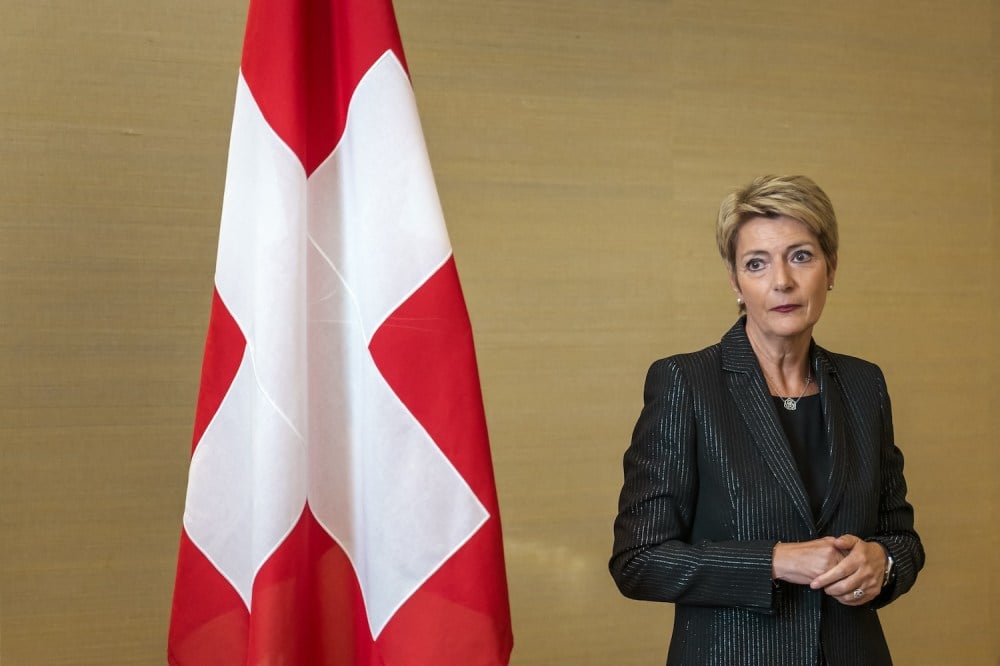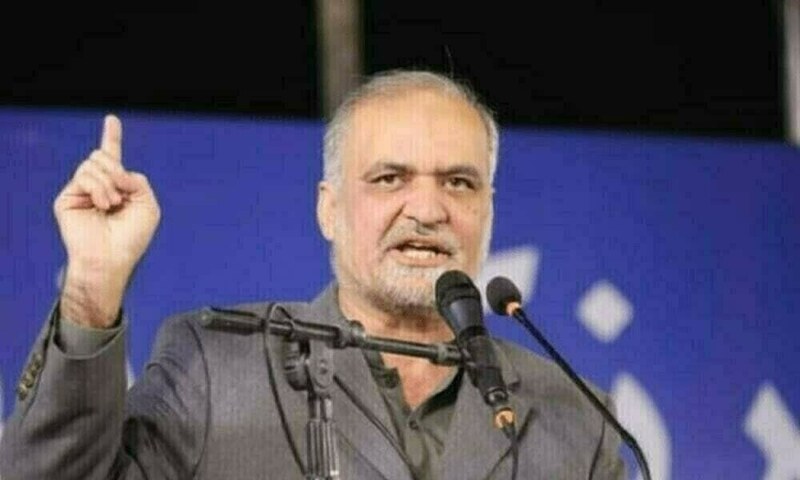Copyright Foreign Policy

When Switzerland celebrated its 734th National Day in August, President Karin Keller-Sutter faced an audience expecting reassurance about the country’s economic stability and diplomatic standing amid escalating global trade tensions. Instead, she delivered news that would fundamentally challenge the basic pillars of Swiss political identity. The United States had imposed 39 percent tariffs on Swiss goods—more than double the rate facing the European Union and among the highest levied on any developed economy. The shock was not merely economic. For a nation built on the pillars of neutrality, direct democracy, and financial prudence, these tariffs represented something more existential, proof that Switzerland’s carefully cultivated exceptionalism no longer offered protection in an era of economic coercion. Switzerland’s predicament reveals uncomfortable truths about power in the modern international system. The country had done everything supposedly right. It maintained friendly relations with Washington. Its pharmaceutical giants, Roche and Novartis, invest significantly in U.S. production. Swiss banks cooperate extensively on tax transparency. The government even delayed signing a comprehensive framework agreement with the EU to preserve diplomatic flexibility. None of it mattered. When U.S. President Donald Trump announced the tariffs, citing the nearly $40 billion Swiss surplus in the bilateral trade of goods, Switzerland learned that small nations face a binary choice in today’s world: align with a major power bloc or accept vulnerability. Switzerland’s struggle signals a broader collapse of the postwar bargain that allowed small, wealthy nations to remain politically unaligned while economically prosperous. If even Switzerland, with its centuries of neutrality and deep integration into Western economies, cannot escape coercion, no middle power is safe—and other strategically positioned states now face pressure to choose sides in an increasingly bipolar world order. The best measure of Switzerland’s growing vulnerability is the tariff rate itself, which surpasses those levied on global heavyweights. At 39 percent, Switzerland encountered harsher treatment than China (34 percent, at its base), more than double the EU rate (15 percent), and nearly four times Britain’s burden (10 percent). For the Swiss economy, where exports constitute about 70 percent of GDP and the United States is the single-largest market outside Europe, these figures are striking. The Swiss pharmaceutical sector, which accounts for nearly 60 percent of Swiss exports to the United States, faced particular jeopardy. When Trump threatened an additional 100 percent tariff specifically on pharmaceuticals, ostensibly over drug pricing but actually aimed at forcing broader concessions, Switzerland confronted the first of many impossible choices between economic survival and political sovereignty. Thus far, multiple overtures by Swiss leaders to Washington have been rebuffed; meanwhile, Swiss pharmaceutical firms are trying to assuage the White House with major investments in the United States. The Swiss have been forced to adapt with a new level of pragmatism, even as this new era of economic coercion chips away at the country’s long-held principles. Switzerland is now reevaluating increased economic integration with Europe and considering accelerated implementation of the bilateral package concluded with Brussels in December 2024. This accord has already paid off, as Switzerland was granted reentry into the EU’s Horizon Europe research program on Nov. 10. Closer European alignment would provide Bern with protection through market scale and collective bargaining power that it cannot achieve alone. The EU’s 15 percent tariff rate versus Switzerland’s 39 percent demonstrates the advantage of bloc membership. After decades of prioritizing bilateral arrangements that maximized Swiss negotiating leverage, Bern is now embracing coalition building as a shield against U.S. pressure. Switzerland is now more aggressively pursuing trade agreements with India, Thailand, and Mercosur and considering revitalized engagement with the Association of Southeast Asian Nations. Most notably, Switzerland launched the Future of Investment and Trade (FIT) Partnership in September, a plurilateral initiative with New Zealand, Norway, Singapore, and several other small advanced economies. With a greater combined economic heft and representing critical nodes in global supply chains—from Swiss pharmaceuticals to Singaporean semiconductors to Nordic green technology—the hope is that small, wealthy democracies can form their own strong defensive bloc against great-power coercion and present a stronger hand at the negotiating table with Washington and Beijing. Swiss public opinion on further integration with Europe has shifted in favor of greater alignment. Powerful business groups have openly endorsed greater trade integration with Europe, breaking with their historic hesitancy. Politics is catching up to the economic reality, though in Switzerland’s referendum-based democracy, any EU agreement wouldn’t be finalized until 2027 at the earliest. Switzerland’s crisis also exposed the limits of so-called strategic assets. Swiss officials had assumed that hosting U.S. pharmaceutical production and managing significant U.S. wealth would provide leverage. But it didn’t matter that Switzerland, a country with a population of 9 million, is the sixth-largest investor in the United States and directly supports nearly 400,000 U.S. jobs. Nor did it matter that the large trade surplus cited by the White House was partially distorted by arbitrage-driven gold sales. In Trump’s transactional worldview, these assets simply offered additional pressure points, turning the pharmaceutical sector’s success into a vulnerability rather than a strength. The tariffs also challenged Swiss currency policy. As export orders dried up and investment fled uncertainty, the Swiss franc initially surged, the exact opposite of what Swiss exporters needed. The Swiss National Bank (SNB) faced an impossible trilemma: maintain currency stability, preserve negative interest rates to discourage franc appreciation, or prevent capital outflows that might trigger financial instability. Each option carried substantial risks; for now, the SNB, after cutting rates throughout last year, is holding the primary rate at zero percent, hoping that the cuts will stave off deflation without the need for strong monetary action. As a result of the tariffs, experts have warned that Swiss economic growth will drop 0.6 percent, and the Swiss government has already slashed its expected growth rate for 2026. Economic stagnation looks unavoidable unless a new diplomatic overture to Washington succeeds. The scramble for new trade partners is beneficial, but it will not compensate for the reduced access to the U.S. market. The experience has forced Switzerland to confront uncomfortable questions about what neutrality means in the 21st century. Historically, Switzerland has maintained military and diplomatic neutrality by staying out of wars and alliances. The Swiss government has long been a trusted interlocutor, and Geneva has historically been a place for adversaries to meet. But when the world’s largest economy decided to weaponize market access, economic neutrality proved impossible. In an era of geoeconomic competition, there is no neutral ground. The loss of economic neutrality threatens to undermine military and diplomatic neutrality as well. Economic integration will certainly lead to expectations of security and diplomatic alignment, as has already been the case for Switzerland when it adopted wholesale EU sanctions against Russia in 2022. Switzerland’s circumstances can be described as somewhat unique, as it faces the highest tariff rate among wealthy democracies. Other small, wealthy states such as Norway (a NATO member), Singapore (which has a trade deficit with the United States in goods), and South Korea (a key U.S. military ally) have received more favorable treatment. Still, what happened to Switzerland could happen to any smaller, prosperous, trade-dependent nations lacking the protection of a major alliance. The episode demonstrates that in today’s international system, vulnerability scales inversely with size, not wealth or diplomatic skill. What has emerged from Switzerland’s ordeal is a case study in how middle powers must adapt to a world where the rules-based order has given way to power-based economics. Swiss officials discovered that technical expertise, financial sophistication, and careful diplomacy mattered less than they assumed. In their place stands a starker reality: High per capita exports, specialized industries, currency strength, and accumulated wealth all marked Switzerland as a target for a U.S. administration seeking to extract concessions. For other small nations watching Switzerland’s predicament, the lesson is sobering. The post-1945 international order that allowed small, neutral, wealthy states to thrive independent of great-power politics is eroding. In its place emerges a world where economic heft matters more than diplomatic finesse, where market access becomes a weapon, and where neutrality is a luxury few can afford. Not aligning with a protective bloc may invite economic coercion. The geopolitical stakes are profound. For 70 years, small states provided crucial stabilizing functions in international politics: Switzerland and Austria as neutral meeting grounds, Singapore and Dubai as trading hubs connecting rival blocs, Norway and Canada as honest brokers in regional conflicts. These nations proved that great-power backing wasn’t necessary to thrive—only competence, neutrality, and respect for rules. If this model becomes unsustainable, the world loses crucial shock absorbers that have prevented regional tensions from escalating into global crises. Now, the most vulnerable are wealthy but militarily weak states with significant trade exposure. Norway’s sovereign wealth fund makes it a target; Ireland is caught between U.S. tech investment and EU loyalty. Middle powers from Brazil and Nigeria to rising Asian states such as Thailand and Malaysia have benefited from being economic connectors—but heightened pressure to take sides could convert their heterogeneous economic ties into a vulnerability with profound economic and security implications. The Gulf states have maintained balance between the United States and Beijing successfully so far, but the long-term viability of that strategy will come under increasing strain. Switzerland will likely survive the present crisis. Its economy is resilient, its institutions strong, and its people pragmatic. Ultimately, however, deeper alignment with Europe is viewed by many as the only solution to the structural vulnerabilities Bern faces in the long term. The alpine nation that spent centuries perfecting the art of independence is learning, against its will, the price of isolation in an age of economic warfare and aggressive mercantilism. That may be the real cost of Trump’s tariffs: not the percentage points or lost exports but the erosion of the idea that a small, wealthy nation can chart its own course simply by being useful to everyone. That bargain—independence through neutrality, prosperity through expertise—is unattainable. And along with these losses follows the demise of a model of international relations that, for all its flaws, gave smaller nations dignity and agency in a world of giants.



